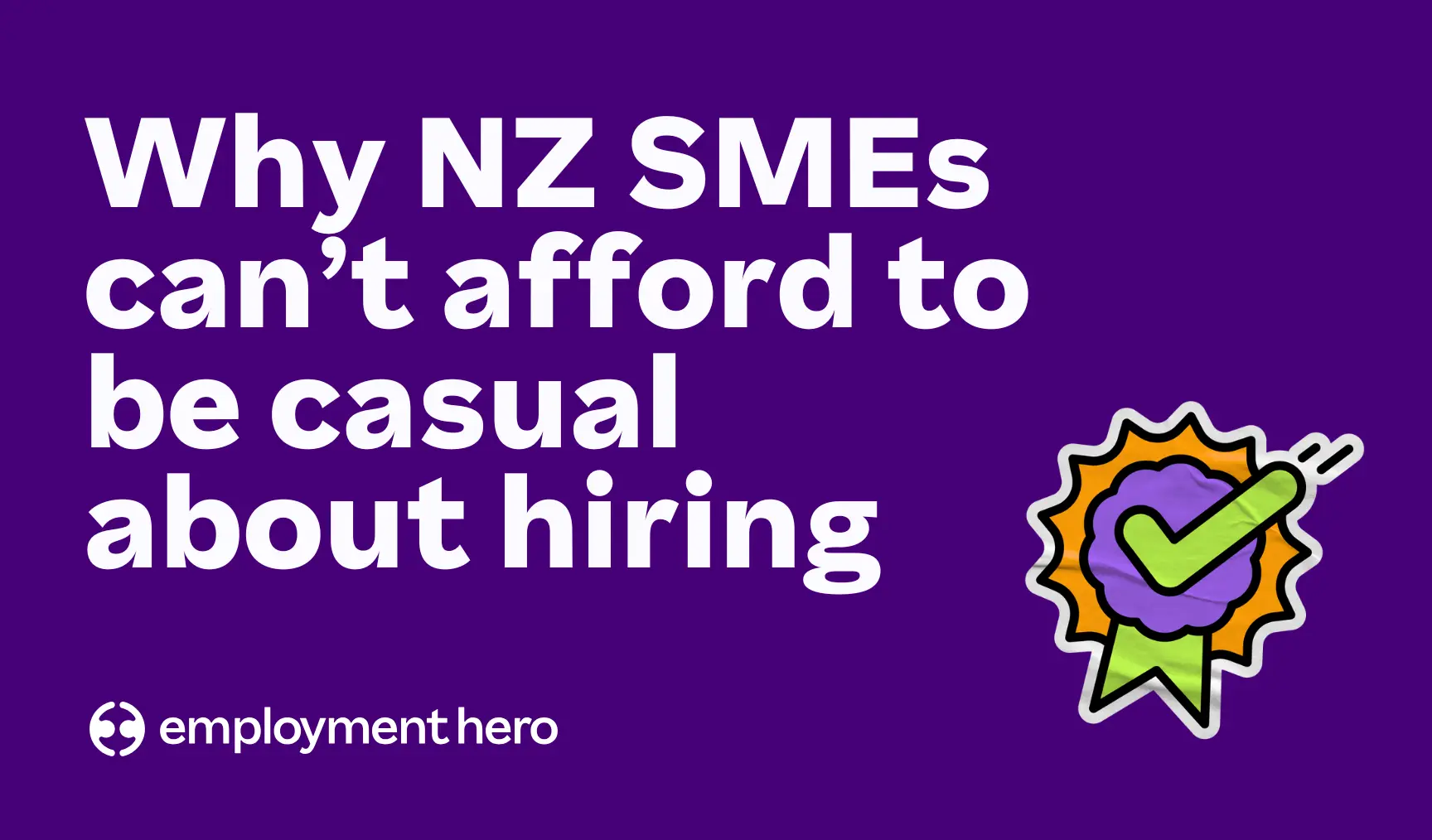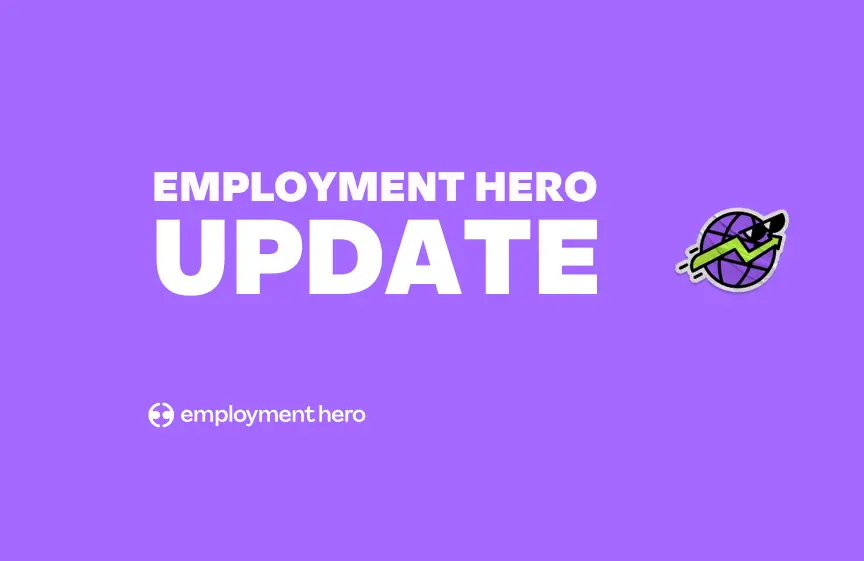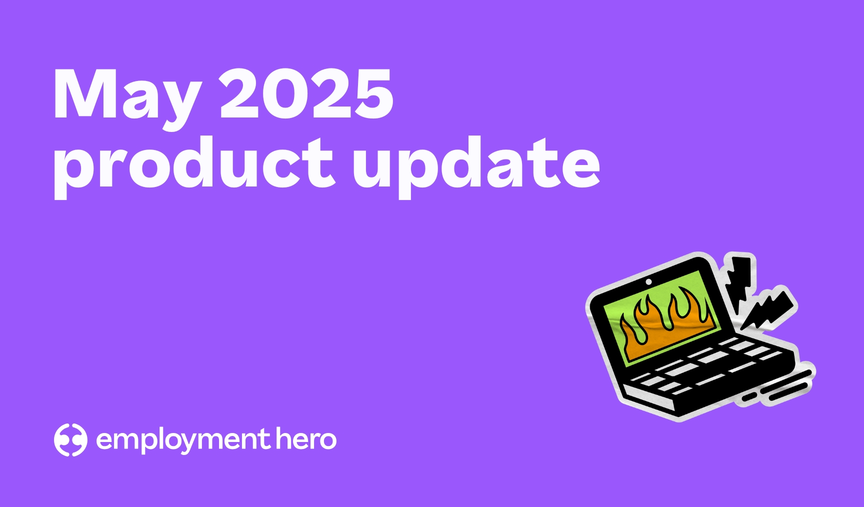The do’s and don’ts of tax time preparation in New Zealand
It’s tax time here in New Zealand. Here’s our top tips so you can ace the weeks ahead – and beyond.

Contents
As we reach the end of the tax year for most businesses in New Zealand, business owners and payroll professionals are getting ready to take stock. There’s plenty to do, from collecting a year’s worth of financial data to measuring out the tax bill for the months ahead.
Every business has got to go through it but it doesn’t always have to be a struggle. We’ve collected our top do’s and don’t for tax time preparation, so you can save time and focus on the important stuff.
Here’s what you should do…
Do keep across legislative changes
The employment landscape is constantly changing, especially when it comes to legislation.
As tricky as it can be, it’s crucial for those in HR and payroll to be across all the latest legal updates. Missing a change to leave entitlements or the minimum wage can result in serious penalties further down the line.
It’s often during the start of a new tax year that many changes come into force as well, so make sure that your pay and leave entitlements are correctly set for the year ahead.
If you’re looking for a source of information, here at Employment Hero we regularly post about the latest employment law updates in New Zealand. Check out the latest resources here.
Do consider digitising your payroll function
If every payday filing day arrives in a flurry of admin and paperwork, it might be time to consider streamlining the process through payroll software.
Software like Employment Hero Payroll can automate IRD reporting with every pay run, while simultaneously storing key records in a safe, searchable place for when you need it later.
From a payroll perspective, at the end of financial year you’ll also need to reconcile your payroll data for 2023-2024 with what has been reported to IRD, to ensure that it all balances.
That includes reviewing employer superannuation contribution tax (ESCT) rates for all employees.
Which brings us to our next point…
Do make sure your records are easy to access
When it comes to submitting tax returns at the end of the financial year, it’s not as easy as just filling out a form with some numbers.
It takes some research through the last year of documents and data. For most businesses and outsourced payroll providers, this can require a serious amount of admin, and time – especially if you’re reliant on scattered digital files or paper records.
As mentioned, payroll software isn’t just there to automate processes – it also acts as a home for all your crucial data. No more searching, just generate the reports you need and download them in a few clicks.
Do use this time as a chance to do a check up
Much as the end of the traditional calendar year brings with it new resolutions, the end of a tax year can be a good time to assess your business.
Is there anything you could do to support the team and the business so that the next tax year sees a stronger financial performance? Now is a great opportunity to consider new investments and initiatives, from innovative performance review structures to improved feedback loops.
And here’s what not to do…
Don’t just copy last year’s figures
As much as you may think your or your client’s business hasn’t changed much from last year, using previous figures as a base can be a recipe for unintentional mistakes.
There’s always some variation, so make sure you treat this year as a fresh new tax return. You might find some pleasant surprises in how things are different this time around.
Don’t submit without double checking your calculations
We get it – you’re on your third coffee of the evening and you really, really want to get this tax return sent off after a couple of days’ work.
However, making a mistake on your submission to IRD can take far more time to remedy. It’s possible, but it’s frustrating and requires more work than a simple double check would! Make sure to take time to go back over the figures and ensure that everything is accurate.
Don’t leave it to the last minute
For most businesses in the 2023-2024 tax year, income tax returns must be completed and submitted to IRD before 7 July 2024.
That gives you just over three months from the end of the tax year to the tax return deadline to get everything in.
Factor in time and don’t leave it until the last minute to submit your return. The penalty for filing late can be up to $500 NZD, so don’t make that costly mistake.
Employment Hero Payroll could be your best partner during tax time
Imagine if you could tick off so many end of financial year tasks in one go, by storing key information and making IRD submissions on one secure digital platform. Doesn’t that sound good?
Our all-in-one HR, payroll and benefits platform makes record-keeping, reporting and workforce management easy at EOFY. Learn more about how we can help you at tax time by speaking with one of our small business specialists today.
Looking for more advice? Download our EOFY checklist here
Disclaimer: The information in this article is current as at 3 March 2023, and has been prepared by Employment Hero Pty Ltd (ABN 11 160 047 709) and its related bodies corporate (Employment Hero). The views expressed in this article are general information only, are provided in good faith to assist employers and their employees, and should not be relied on as professional advice. The Information is based on data supplied by third parties. While such data is believed to be accurate, it has not been independently verified and no warranties are given that it is complete, accurate, up to date or fit for the purpose for which it is required. Employment Hero does not accept responsibility for any inaccuracy in such data and is not liable for any loss or damages arising either directly or indirectly as a result of reliance on, use of or inability to use any information provided in this article. You should undertake your own research and to seek professional advice before making any decisions or relying on the information in this article.
Related Resources
-
 Read more: Still Coasting? Why NZ SMEs Can’t Afford to Be Casual About Hiring
Read more: Still Coasting? Why NZ SMEs Can’t Afford to Be Casual About HiringStill Coasting? Why NZ SMEs Can’t Afford to Be Casual About Hiring
The casual approach to hiring is costing you – find out how to snap out of it.
-
 Read more: SEEK Cut the Cord. Here’s What We’re Doing About It.
Read more: SEEK Cut the Cord. Here’s What We’re Doing About It.SEEK Cut the Cord. Here’s What We’re Doing About It.
Seek is ending Employment Hero’s API access. Read about what we’re doing and how we are building a faster and…
-
 Read more: Product Update: May 2025
Read more: Product Update: May 2025Product Update: May 2025
Follow our May 2025 product update as we share all of the latest and greatest features we’ve released over the…











